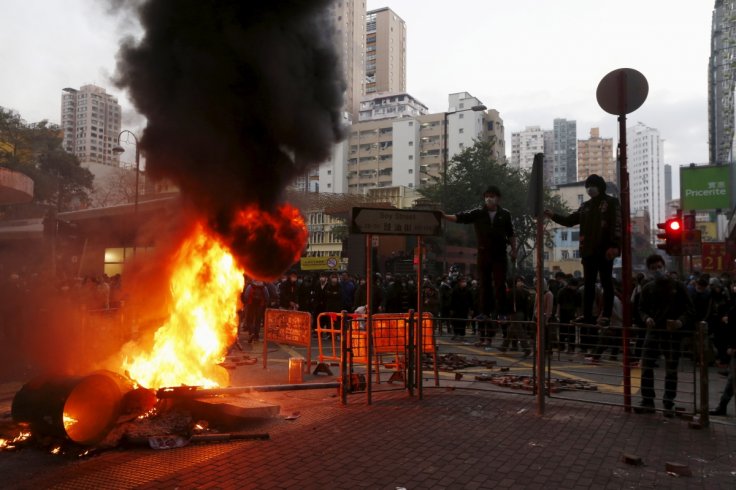
A day after Hong Kong streets erupted into spontaneous rioting apparently over a crackdown on hawkers, serious questions have been asked if the protest was all about fishball stalls.
Police have said more than 90 of its personnel have been injured in clashes with protesters with TV footage showing rioters beating and kicking policemen lying on the ground. More than 50 protesters have been arrested and the police chief has said a wider hunt to net more instigators and perpetrators is underway.
More significantly, the leader of 'localist' group Hong Kong Indigenous, a Beijing critic who is contesting an election to a local council, has been arrested by police over the riots.
The centre of the protest was the Mong Kok area of the city, which was the nerve centre of the pro-democracy protests in 2014.
Experts believe there is more to the protests than hawkers selling fishballls on the streets. There is apparently nothing that the young activists have against the popular street cuisine in the city.
There has been growing discontent against the pro-Beijing government in the city of seven million people after violent 11-week pro-democracy movement of 2014 fizzled out.
The increasing numbers of young, middle class citizens are worried if the government is doing the right thing defending the semi-autonomous status of the city. In fact a growing number of people in the city want more western style individual freedoms.
Edward Leung Tin-kei, Hong Kong Indigenous leader, had exhorted the residents last month to use "any means necessary" to fight against what he called the "re-colonialisation" of the city by China.
"If the police attack you, then you have to fight back," he had said.
The message is not lost on the city's leaders.
"We have noticed a shift in some members of the public," Hong Kong's Police Commissioner Lo Wai-chung said, according to agencies. "They have an inclination to use violence or radical acts in order to express their opinion."
However, the official would not say if the violence was the result of strong anti-government sentiment in the city. ""You have to ask those people who appeared to be organisers behind this riot," he said, TODAY reported.
Hong Kong's Chief Executive CY Leung said the rioters were "seriously jeopardizing the safety of police officers and other people at the site".









